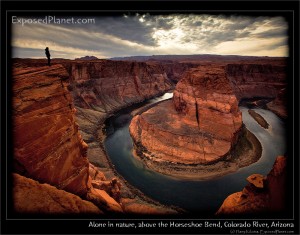It’s even worse
Many of you have read my previous article, “Why sharing photos on Facebook is bad for you“, and have learned that sharing your photos is not just bad for you, but also for your friends and especially for your photography business. Check it out first if you have not done so. I will wait a moment here.
Welcome back. That post got re-tweeted a lot (thanks!) and I got a few comments that made me check my websites and dig even deeper (thank you Matthew, Kerry, Tim and Rob) and it appears the situation is even worse than imagined. My apologies for the following long post involving lots of assumptions and legal stuff. But I think it is important to get this out in the open.
To lighten it up a little, I have added some more cheerful images (you can click on them to go to a larger version on the ExposedPlanet photoblog for details, exif info and comments).
Like this? Please ReTweet!
Ps: all images are mine and link to larger versions on ExposedPlanet.com photoblog. They are available as print, free eCard or commercial/editorial licensing. Or just enjoy them and read the thoughts behind the pictures as well as technical info for photographers!
But first, read and weep:
In defense of Facebook
Facebook is a company that is worth billions. Well done. Unfortunately, as always this attracts all kinds of idiots and lazies looking for easy money as they are too stupid to think of a good idea of their own. Especially in the US it is customary to sue for anything you want, which is a pain in the behind for any company and individual. I am positive that there are dozens of people currently scheming to set up Facebook by testing the legal limits, placing ‘bad’ pictures of themselves through friends and then blaming FB for it.
FB needs a strong defense against this, and also to allow FB users to share links, comment on each other’s photos and do all things that makes FB a successful social tool. I totally agree that they keep it strict to avoid problems rather than fixing them.
But that does not mean that they need to wipe out everybody else’s rights like Monsanto’s toxic chemicals on a corn field. Yes, it will do the job, but meanwhile destructing everything else.
I am a photographer and no IP lawyer, but it seems to me that there is no reason to be able to ‘sublicense’ and ‘transfer’ your IP content ‘worldwide’ ‘royalty free’, while using your private content to show advertisements to your friends unless you opt out of this, while you never get paid for it.
This is not protecting them, just increasing their market value. And as I pointed out, these terms contradict the terms all stock photographers sign for with their stock company, putting them at legal risk.
Disclaimer: do what you want with this information on this blog, but don’t blame me for either taking your pictures off or leaving them on FB. maybe I am wrong, maybe I am right. Surely you should be able to decide for yourself what to do. First, let’s dig a bit deeper in the legal mess of the rest of the Terms.
Why Low resolution pictures are just as bad.
The first question from Matthew was:
“What about uploading low-res 600px images? Maybe with a watermark?
Sure they could still possibly use them for small FB ads (someone would have to go to the trouble of erasing the watermark), but the quality wouldn’t be good enough for bigger types of sales…”
First of all: Low resolution and/or watermarked pix are needed everywhere online to prevent illegal use of your images on any website, even your own. Even if the website (like Flickr) is not ‘dirty’ as Facebook, their visitors could be. So never upload any high resolution versions anywhere on a public site.
I have not read Flickr’s terms of service in detail, but I am sure they will deny responsibility (and rightfully so) if your public supersize images are being abused as anybody can copy them. Don’t blame anybody else for being careless yourself. It’s like leaving all your valuables on the front lawn: some people will just pass and admire them, others will just take them and run. Only difference is that online your things can be taken over and over again.
Problem is that FB can _legally_ use all images, so even low res ones. I think the chances are very small, but I just don’t want this to ever happen and don’t want even the possibility (plus the fact that I sell to stock agencies, which would mean breach of contract with them!). So I have zero photos on Facebook.
What about sharing thumbnails of pictures hosted on Flickr and elsewhere?
Kerry reacted and mentioned:
“What I do use however is flickr, which I have linked to my fb account so it tells people I’ve updated my photostream and often puts a little thumbnail of the photo. Please could you tell me what this could mean in terms of what you’ve described above? “
First of all, Facebook would still be very happy with small pictures, as their current ads system is based on that, they can promote a product and have your name under it and your profile picture (or any other picture you shared). So thumbnails would be just perfect for them.
I replied:
Flickr itself is much more ethical than FB as they do not claim any licensing rights on your photos, so it is good to post photos there (just do not share any high resolution images publicly). As far as posting links with thumbnails (what is what you are basically describing) I would think that this would not be any problem, as FB could never know if you are posting your own intellectual property or IP from someone else.
If you would upload the thumbnails to your photo album, they then would get all the rights for sure. Again, I am a photographer, not a lawyer and do not know the legal background of the “in connection with FB” part of their terms means. But they lost me long before that with their sneaky terms… They clearly can’t be trusted, so I won’t.
And then there were more hidden terms: the like and Share buttons. Problems after all.
You might have noticed that since this week, I have taken the Share to FB and FB Like buttons off my site. Why would I do that? When replying to the comments, I checked the rest of the terms, which includes the following, I quote:
“Special Provisions Applicable to Share Links”
If you include our Share Link button on your website, the following additional terms apply to you:
We give you permission to use Facebook’s Share Link button so that users can post links or content from your website on Facebook.
You give us permission to use and allow others to use such links and content on Facebook.
So I guess, yes, they do claim rights of anything you share. And if fact anything from any website that has a ‘share’ or ‘like’ button!
Of course Facebook must protect themselves so you could argue that something like this should be in their terms, else they cannot display any shared links. But there is no reason to have all rights of all content submitted, which makes even this ‘share’ term suspicious.
If somebody wants to ‘share’ a piece of art that is licensed as RM image, then your stock company should allow this, as it is promoting the artist. But they will never allow sub-licensing, which rights FB claims by default. So if someone shares your RM photos, you breach contract, you are liable, while FB does not need the rights they ask. The Monsanto approach of killing weed.
Rob asked:
Like Kerry and Tim, I’m wondering how the FB terms apply when posting a share link from Flickr or my blog. If I do that, do I, or do I not, sign away all rights to my images? If there were a clear answer to that, I’d take appropriate action TODAY.
And Tim commented:
“yes, based on what they say in their policy, facebook can use any Share Links content that you post. BUT, I wonder if that really means you give them permission to take the photos you post on Flickr. They use the words “my website”. I would assume that means your own personal website owned by you, like a blogging site or something similar. Since flicker is not technically “your” website, I should hope that you could still Share Link flicker photos on facebook and be fine (but im not %100 sure…also not a lawyer).
As good as their lawyers may be, It seems weird that facebook would be able to take photos that you post from another large internet company like flickr just beacuse you post a Share Link. If those rules applied, wouldn’t that mean if I liked an article from the NY times website and shared it on facebook, facebook could use that content any way they wanted? That doesn’t seem reasonable. Am I on to something here or way off?
I think you are both correct and that is why I had started this follow-up post: it is weird and not reasonable at all. But those are not legally accepted terms (else there would be no senseless suing).
Protecting Other People’s RightsWe respect other people’s rights, and expect you to do the same.
- You will not post content or take any action on Facebook that infringes or violates someone else’s rights or otherwise violates the law.
- We can remove any content or information you post on Facebook if we believe that it violates this Statement.
- We will provide you with tools to help you protect your intellectual property rights. To learn more, visit our How to Report Claims of Intellectual Property Infringement page.
- If we remove your content for infringing someone else’s copyright, and you believe we removed it by mistake, we will provide you with an opportunity to appeal.
- If you repeatedly infringe other people’s intellectual property rights, we will disable your account when appropriate.
- You will not use our copyrights or trademarks (including Facebook, the Facebook and F Logos, FB, Face, Poke, Wall and 32665), or any confusingly similar marks, without our written permission.
- If you collect information from users, you will: obtain their consent, make it clear you (and not Facebook) are the one collecting their information, and post a privacy policy explaining what information you collect and how you will use it.
- You will not post anyone’s identification documents or sensitive financial information on Facebook.
- You will not tag users or send email invitations to non-users without their consent.
So, what does this really mean? I translate the above loosely as:
“You are responsible for all problems resulting from you likely breaking the law as a result of normal behaviour under our crazy terms. It is your responsibility to get legal permissions for things that you did not know that break the law, even if it is the direct result of our terms”
They basically take no responsibility for anything….
But wait, there is more
So it would be better to have your own website and have a share button instead of posting on FB?
The plot thickens.
- 8: Special Provisions Applicable to Share Links If you include our Share Link button on your website, the following additional terms apply to you:
- We give you permission to use Facebook’s Share Link button so that users can post links or content from your website on Facebook.
- You give us permission to use and allow others to use such links and content on Facebook.
- You will not place a Share Link button on any page containing content that would violate this Statement if posted on Facebook.
Guess what? Yes, they seem to claim all rights from all websites that have Share (and other FB) buttons and applications. And if they cannot legally claim the content? Then they still do and blame you for offering the button while you shouldn’t have. They are not responsible for anything.
- 9: Special Provisions Applicable to Developers/Operators of Applications and Websites If you are a developer or operator of a Platform application or website, the following additional terms apply to you:
- You are responsible for your application and its content and all uses you make of Platform. (…)
- Your access to and use of data you receive from Facebook, will be limited as follows:
- You will only request data you need to operate your application.
- You will have a privacy policy that tells users what user data you are going to use and how you will use, display, share, or transfer that data and you will include your privacy policy URL in the Developer Application.
- You will delete all data you receive from us concerning a user if the user asks you to do so, and will provide a mechanism for users to make such a request.
- You will not directly or indirectly transfer any data you receive from us to (or use such data in connection with) any ad network, ad exchange, data broker, or other advertising related toolset, even if a user consents to that transfer or use.
- You will not sell user data. If you are acquired by or merge with a third party, you can continue to use user data within your application, but you cannot transfer user data outside of your application.
- We can require you to delete user data if you use it in a way that we determine is inconsistent with users’ expectations.
- We can limit your access to data.
- You will comply with all other restrictions contained in our Facebook Platform Policies.
- You will not give us information that you independently collect from a user or a user’s content without that user’s consent.
- You will make it easy for users to remove or disconnect from your application.
- You will make it easy for users to contact you. We can also share your email address with users and others claiming that you have infringed or otherwise violated their rights.
- You will comply with all applicable laws. In particular you will (if applicable):
- have a policy for removing infringing content and terminating repeat infringers that complies with the Digital Millennium Copyright Act.
- comply with the Video Privacy Protection Act (“VPPA”), and obtain any opt-in consent necessary from users so that user data subject to the VPPA may be shared on Facebook. You represent that any disclosure to us will not be incidental to the ordinary course of your business.
- We do not guarantee that Platform will always be free.
- You give us all rights necessary to enable your application to work with Facebook, including the right to incorporate content and information you provide to us into streams, profiles, and user action stories.
- You give us the right to link to or frame your application, and place content, including ads, around your application.
- We can analyze your application, content, and data for any purpose, including commercial (such as for targeting the delivery of advertisements and indexing content for search).
- We can create applications that offer similar features and services to, or otherwise compete with, your application.
Note that I left some less important parts out, it is mixed with a lot of rules explaining how FB can legally mess with developers of applications, which are horrible enough, but not the subject here.
The main gist is: Website owners and application developers are responsible for all that FB can do and they can’t. You need to comply with all laws, so FB doesn’t have to. If your application is good, FB can and might copy it.
And in case it was not clear that your name and profile picture can be used as well as all content, FB is nice enough to literally spell it out:
10: About Advertisements and Other Commercial Content Served or Enhanced by Facebook
- You can use your privacy settings to limit how your name and profile picture may be associated with commercial, sponsored, or related content (such as a brand you like) served or enhanced by us. You give us permission to use your name and profile picture in connection with that content, subject to the limits you place.
- We do not give your content or information to advertisers without your consent.
- You understand that we may not always identify paid services and communications as such
So you need to state that you do not want this. And likely, “without your consent” does not mean anything as you already signed all rights to all intellectual property away to begin with.
But what about just using a share/like button? Legally, it depends how you define things…
Check out the definitions:
- Definitions
- By “Facebook” we mean the features and services we make available, including through (a) our website at www.facebook.com and any other Facebook branded or co-branded websites (including sub-domains, international versions, widgets, and mobile versions); (b) our Platform; (c) social plugins such as the like button, the share button and other similar offerings and (d) other media, software (such as a toolbar), devices, or networks now existing or later developed.
- By “Platform” we mean a set of APIs and services that enable others, including application developers and website operators, to retrieve data from Facebook or provide data to us.
- By “information” we mean facts and other information about you, including actions you take.
- By “content” we mean anything you post on Facebook that would not be included in the definition of “information.”
- By “data” we mean content and information that third parties can retrieve from Facebook or provide to Facebook through Platform.
- By “post” we mean post on Facebook or otherwise make available to us (such as by using an application).
- By “use” we mean use, copy, publicly perform or display, distribute, modify, translate, and create derivative works of.
My personal translation, per number:
1) & 2): By having a share or like button on your website you and your website are part of these insane Facebook terms
3) & 4) & 6): Everything you do and/or share on Facebook or any other website with Facebook content, Facebook owns.
7): We can make money of you however we feel like.
What is your translation?
But…
But what if the website owner is not a Facebook user, but just uses the buttons to promote content? Too bad, it falls under the definitions above.
But what if he has content he cannot legally give the rights away of, like user-posted content, or images of people without model releases? You should have thought of that before allowing FB to use all they want in any way they want. You apparently did this the moment you added a ‘share/like’ button or any other FB application like a list of friends etc.
But is this legal? Hey, you accepted the terms by signing up and therefore have signed off on your life. To rub it in and make it legal, some final quotes from the terms page:
- 18: Other
- This Statement makes up the entire agreement between the parties regarding Facebook, and supersedes any prior agreements.
- If any portion of this Statement is found to be unenforceable, the remaining portion will remain in full force and effect.
- If we fail to enforce any of this Statement, it will not be considered a waiver.
- You will not transfer any of your rights or obligations under this Statement to anyone else without our consent.
- All of our rights and obligations under this Statement are freely assignable by us in connection with a merger, acquisition, or sale of assets, or by operation of law or otherwise.
- Nothing in this Statement shall prevent us from complying with the law.
- This Statement does not confer any third party beneficiary rights.
- You will comply with all applicable laws when using or accessing Facebook.
What? Translated in human speak:
1): We decide what you have signed for even if it was different at the time of signing
2) & 3) & 6): even if we doing illegal things, we are still legal.
4) & 5) & 7): You are responsible for all you do and can never blame anybody else, while others we abuse can blame you. Meanwhile we can sell all your data, intellectual property, private items and all rights and obligations to anybody that wants to buy our shares.
And if we don’t agree?
Well, then you can just terminate the agreement. Or can you? Facebook can, but can you as well?
Termination If you violate the letter or spirit of this Statement, or otherwise create risk or possible legal exposure for us, we can stop providing all or part of Facebook to you. We will notify you by email or at the next time you attempt to access your account. You may also delete your account or disable your application at any time. In all such cases, this Statement shall terminate, but the following provisions will still apply: 2.2, 2.4, 3-5, 8.2, 9.1-9.3, 9.9, 9.10, 9.13, 9.15, 9.18, 10.3, 11.2, 11.5, 11.6, 11.9, 11.12, 11.13, and 14-18.
Yeah, yeah, we get it. Whatever you do wrong, it is our fault as by acting reasonably, any FB user will put FB at legal risk due to these insane terms & conditions.
You can block us from accessing our data, while you can still keep on using it in whatever way you like. At least we have a right to dispute. Or have we?
Disputes
- You will resolve any claim, cause of action or dispute (“claim”) you have with us arising out of or relating to this Statement or Facebook exclusively in a state or federal court located in Santa Clara County. The laws of the State of California will govern this Statement, as well as any claim that might arise between you and us, without regard to conflict of law provisions. You agree to submit to the personal jurisdiction of the courts located in Santa Clara County, California for the purpose of litigating all such claims.
- If anyone brings a claim against us related to your actions, content or information on Facebook, you will indemnify and hold us harmless from and against all damages, losses, and expenses of any kind (including reasonable legal fees and costs) related to such claim.
- WE TRY TO KEEP FACEBOOK UP, BUG-FREE, AND SAFE, BUT YOU USE IT AT YOUR OWN RISK.
- WE ARE PROVIDING FACEBOOK “AS IS” WITHOUT ANY EXPRESS OR IMPLIED WARRANTIES INCLUDING, BUT NOT LIMITED TO, IMPLIED WARRANTIES OF MERCHANTABILITY, FITNESS FOR A PARTICULAR PURPOSE, AND NON-INFRINGEMENT.
- WE DO NOT GUARANTEE THAT FACEBOOK WILL BE SAFE OR SECURE.
- FACEBOOK IS NOT RESPONSIBLE FOR THE ACTIONS, CONTENT, INFORMATION, OR DATA OF THIRD PARTIES, AND YOU RELEASE US, OUR DIRECTORS, OFFICERS, EMPLOYEES, AND AGENTS FROM ANY CLAIMS AND DAMAGES, KNOWN AND UNKNOWN, ARISING OUT OF OR IN ANY WAY CONNECTED WITH ANY CLAIM YOU HAVE AGAINST ANY SUCH THIRD PARTIES.
- IF YOU ARE A CALIFORNIA RESIDENT, YOU WAIVE CALIFORNIA CIVIL CODE §1542, WHICH SAYS: “A GENERAL RELEASE DOES NOT EXTEND TO CLAIMS WHICH THE CREDITOR DOES NOT KNOW OR SUSPECT TO EXIST IN HIS FAVOR AT THE TIME OF EXECUTING THE RELEASE, WHICH IF KNOWN BY HIM MUST HAVE MATERIALLY AFFECTED HIS SETTLEMENT WITH THE DEBTOR.”
- WE WILL NOT BE LIABLE TO YOU FOR ANY LOST PROFITS OR OTHER CONSEQUENTIAL, SPECIAL, INDIRECT, OR INCIDENTAL DAMAGES ARISING OUT OF OR IN CONNECTION WITH THIS STATEMENT OR FACEBOOK, EVEN IF WE HAVE BEEN ADVISED OF THE POSSIBILITY OF SUCH DAMAGES.
- OUR AGGREGATE LIABILITY ARISING OUT OF THIS STATEMENT OR FACEBOOK WILL NOT EXCEED THE GREATER OF ONE HUNDRED DOLLARS ($100) OR THE AMOUNT YOU HAVE PAID US IN THE PAST TWELVE MONTHS.
- APPLICABLE LAW MAY NOT ALLOW THE LIMITATION OR EXCLUSION OF LIABILITY OR INCIDENTAL OR CONSEQUENTIAL DAMAGES, SO THE ABOVE LIMITATION OR EXCLUSION MAY NOT APPLY TO YOU. IN SUCH CASES, FACEBOOK’S LIABILITY WILL BE LIMITED TO THE FULLEST EXTENT PERMITTED BY APPLICABLE LAW.
Hahahahaha.
So if you have complaints, you need to go to a Californian court, but you cannot claim the Californian laws protecting you. Facebook is not responsible for anything, you for everything (yeah, yeah, we get it).
If you manage to hire more lawyers than FB and FB is found guilty of illegal activity after all, then you can claim a maximum of $100.
That is, if you have paid that amount to FB, free users can claim nothing, does not matter if they lost all rights to all photos and content, had their friends and family abused online and have lost their privacy forever.
How about that?
The bottom line:
You are paranoid and over reacting? Facebook is a wonderful marketing tool.
Rob commented:
But I wonder: Is that enough? The conundrum is that many photographers feel that FB is an effective venue for marketing their work, and yet they freely sign away their rights when they don’t read the Terms. Without an established presence on FB — however minimal — I do feel as though I’m missing some action.
Maybe and really? Of course FB is the perfect way to see what your ex-girlfriends are up to, how that bully from high-school has gotten comfortably fat and even some useful social features. But marketing?
There are quite a few posts popping up about the lack of any success stories of Facebook marketeers. Like for regular users, for business it is mostly a waste of time and resources. Show me somebody who actually improved their marketing and sales through Facebook without legally exposing himself as explained above. And I do not mean any teenage pop idols. Don’t forget the threats to photography business I outlined in part one. This is a photography blog and aimed at photographers. But even non-photographers should worry about their privacy
As mentioned above I realize that also FB must protect themselves from the trigger-happy sue-ers out there. It must be a minefield to collect so much info and intellectual property and of course they are careful. But by claiming all rights and disclaiming all responsibilities, they crossed too many unneeded lines. They can do their business without ruining ours, there seems to be plenty of legal space for that.
Frankly I do not think that your images will ever be abused as there are simply too many (and if so, that you ever will find out). It’s not the little fish they are after, but the ones with quality content and those with thousands of friends: those they can target, using your quality content for free.
Business = money. The only success story on FB is FB itself and some of its partners like Zynga, the company that made farmville etc. Good for them.
You should wonder why Facebook is valued billions of $$$. Do they produce iPods like Apple? No. Do they make an operating system like Microsoft? Nope.
Facebook’s assets are 90% you and your content and 10% technology, though it likely is more you.
Chances are very slim that they will try to beat Getty in the stock business. But every image you add to FB, adds to their value. And you can never be sure what happens in the future, especially not as they are probably planning to go public.
I guess the bottom line is:
- – Do you want to have any risk that any of your images are being used without you knowing and do you want to accept the legal consequences of that as you are the one to blame?
- – And do you really trust a company that clearly is misleading and even though they might not abuse your trust, they could if they want and get away with it?
It’s like signing that contract at the local car dealer. What if there was a small print that said that if you sign once, your signature could be used for any blank contract in the future and you would be legally responsible for any resulting problem or liabilities? That would be absurd right? And you know the guys running the dealership, so it will likely not happen right?
Yes, you are probably right, probably not. But it is what FB does. Partly to protect themselves, but I do not just want to have even 0.001% risk and I definitely do not want to do any business with a company that treats their customers and suppliers with such contempt.
Oh and if you ‘Like’ this post, please Re-Tweet, Stumble, Digg or whatever it. Sorry, no more ‘Like’ button.
Ps: all images are mine and link to larger versions on ExposedPlanet.com photoblog. They are available as print, free eCard or commercial/editorial licensing. Or just enjoy them and read the thoughts behind the pictures as well as technical info for photographers!
Tags: Facebook, Flickr, legal, Share, Stock business, Stock photography




















Hello Harry.
Thanks for bothering to pick over this legal jargon in such detail. I am honestly horrified.
I’m not a pro-photographer, but work in the media and certainly wield a camera now and then as a supplement to written work. And upload photos to my blog for fun/informal advertising (doing that classic linking on FB)…
WON’T BE ANY MORE NOW THOUGH!
Rgds,
Ruth
Thanks for reading and for your comment Ruth.
I think these Terms impact everybody whether you are a pro or not. What if you teach your parents to use Facebook and they mistakenly upload a very private picture to share with their 12 friends and it ends up promoting some product?
They simply should not have the right to take the rights they currently have.
Best regards, Harry
~
Anyone who invokes the name of the equally evil Monsanto in a discussion of Facebook has my complete attention.
I feel that this blog post is a good summary of the case against photographers posting their images on Facebook. With this statement, we should be cautious that, so far, no lawyers have contributed to the discussion. The author might be wrong. I really, really doubt it, but he might be.
For me, the REAL issue boils down to a matter of ethics.
In this day and age, I find very little ethical or moral value in most mega-businesses, be it Facebook, Monsanto, Goldman Sachs, ConAgra, etc. Greed alone seems to rule the day-to-day actions of these PEOPLE (now that the SCotUS has decided that corporations are people, too.) With an ever-dwindling pie of finite resources, marketing venues, and suckers, they all seem to be grabbing for the last slices before the whole system caves in. Which it is, but I digress…
This is NOT ‘conscious business.’
If we are to improve our lot in life, we need to remember that everyone who works at the mega-businesses, everyone who invests in them, everyone who uses or purchase their product, and everyone associated in any way with them… is a human. Rather than honoring and respecting that human element, the world seems on autopilot to no good end, and we’ll likely read about it on Facebook.
So, is Facebook merely seeking to cover themselves from frivolous lawsuits with these Terms and Conditions? One could certainly make a case for that, and Facebook’s likely response would be, “We need to do this in order to stay in business.” From their perspective, that part would be true.
But, we’re judged by our actions. In the past, Facebook has engaged in flagrant violation of people’s rights and privacy, and they were caught doing it. They’ve sought to improve the impression people have of them, and they’ve changed some of their ways, although we’d all have to admit that the Terms are still not very clear or simple.
But make no mistake about it: Facebook’s intention is to control the Internet — to be so ubiquitous that they are the de facto platform for sharing information. I may very well be mistaken, but I think they’ve so much as said this directly. So, while today they may not pursue gaining rights to everything we post on FB, they could likely just flip a switch (change in terms) and gain that access by obfuscating the real implications of the change in mind-numbing T&Cs…….
… If they haven’t already done that! Seems to me that the case made here in this post, is that they already have.
Facebook is a great way for people to maintain a connection with friends, family, and loved ones in a convenient manner. Swell… A telephone can help with that, too. It can be a place where you pen your deepest thoughts… I’ve always used paper for that. And frankly, if my ex- never finds me on Facebook, that’s likely a good thing.
In a time where people are becoming more and more disconnected, both from their loved ones and their own reality, Facebook gives us the impression of being better connected, and yet we’re ever farther away from each other. I’ve long said, “Facebook’s LIKE button: How to pretend that you’re engaged with others without expending any real effort at all.” We placate ourselves with the illusion that we’re jacked in, but in truth, we’ve only distanced ourselves from other people for every minute we spend at the keyboard.
While I am ranting a bit on this subject, the underlying message is: Don’t give your stuff away so freely. If there is even the possibility that your work will be hijacked, I’d advise against doing it. Yes, I know some people claim that they’ve garnered photo business from FB, but is it really so effective a marketing tool that you can afford to sign away your rights? And, while perhaps nothing has happened… yet… is it just a matter of time? Considering the vector that contemporary business has taken over the last decade, I’d say, “Yes, it’s just a matter of time.”
You’ve made a very good case for photographers NOT posting on Facebook, and I thank you for that. I’ve always suspected it wasn’t a good idea. When I believe that a business is not acting in my best interests, I refuse to deal with them. I don’t seek to stop others from such interaction, but I have no place for it in my life. We all make our choices, and mine is now to eliminate Facebook from my daily affairs.
I don’t think I’ll really notice much of a difference.
Thanks again for an insightful article. I’ll be staying tuned to the discussion.
Rob
Wow, thank you for your well thought out reply Rob. You managed to stress the bigger picture (pun intended) that I could not fit in this article, but something that I always try to do in my photoblog.
I could not agree more about both the social aspects of current life on earth. Do you really need 5000 friends? Which ones will be coming over when you need them? FB is the fast food version of a shoulder to cry on. It dumbs people down socially, while taking away the intellectual property.
We have reached a day and age where Good Business practices should be rewarded. Google manages to flip from the bad to the good side and back all the time, but FB simply seems to be pure greed driven and nothing else.
Thanks again for your thoughtful reply,
Best regards, Harry
I am not a lawyer either, but as an amateur photographer and professional web developer I can probably shed some light on why Facebook needs a world wide license to your images and sub-license them and even why the include provisions for making derivative works. When an image is uploaded to Facebook, they can’t do anything with it without the copyright owner’s permission, the very act of uploading is creating a digital copy of the image, which would be a violation of your copyright if you haven’t expressly granted them the right to do that. Subsequently, every time an image is displayed to a Facebook user, a copy of that image is created and stored in that users browser cache. That’s how the internet works, and as such they need a license that allows them to make copies to display images for your friends all around the world. Additionally, when you upload your images instead of storing a full sized copy of the image to display, it automatically generates a compressed thumbnail and gallery sized image for display in your albums on Facebook, and your profile picture allows you to crop an image so it gives the best look on your profile. All of these changes require a license to create derivatives of the original, since they are not merely copies of the original. Lastly, you mention Zynga, and Facebook’s other partners. It is these partners, and the system they use to connect to users on Facebook, that make it necessary for Facebook to sub-license your images. When you connect an application to Facebook, and it wants to display your Facebook profile image, or interact with Facebook in some other way, that application needs a license to use your images. It could get quite cumbersome for a user if it had to remember to grant separate license agreements to each app for the exact same content, so it makes more sense for Facebook to sub-license the photos. And that brings us to an important point that I didn’t see mentioned in either of your posts. the license is subject to your privacy and application settings. If you set your privacy settings such that your photos are only viewable by your friends, then there is absolutely zero market for these images outside of Facebook directly. If I can change my settings so that on a whim I can severely limit and even completely revoke the license, then it seems unlikely anyone would be willing to pay Facebook for the rights to use that image.
Lastly, you mention that Flickr’s Terms of Service are more ethical than FB’s because they don’t claim licensing rights, but if you read the fine print, (not the cool and hip user guidelines, but the actual terms of service) you do indeed grant Yahoo/Flickr a worlwide, non-exclusive, royalty-free license to those images.
I think the larger underlying issue here is that social media is relatively new in legal terms, and the language in these Terms of Service are completely untested in the courts. Lawyers tend to stick with what they know, so in the face of these new technologies they are trying to shoehorn old language into the new situation. Unfortunately, how the courts will interpret this language in light of the new technology remains to be seen, so the most prudent course of action is to play it safe and either don’t upload images at all, or do as I do and only upload images that I don’t expect would have much use commercially.
Hi Marcus, thanks for your comment, much appreciated.
I noticed that Flickr does not have much tos, but I get redirected to Yahoo, which states:
” (b) With respect to Content you elect to post for inclusion in publicly accessible areas of Yahoo! Groups or that consists of photos or other graphics you elect to post to any other publicly accessible area of the Services, you grant Yahoo! a world-wide, royalty free and non-exclusive licence to reproduce, modify, adapt and publish such Content on the Services solely for the purpose of displaying, distributing and promoting the specific Yahoo! Group to which such Content was submitted, or, in the case of photos or graphics, solely for the purpose for which such photo or graphic was submitted to the Services. This licence exists only for as long as you elect to continue to include such Content on the Services and shall be terminated at the time you delete such Content from the Services.
(c) With respect to all other Content you elect to post to other publicly accessible areas of the Services, you grant Yahoo! the royalty-free, perpetual, irrevocable, non-exclusive and fully sub-licensable right and licence to use, reproduce, modify, adapt, publish, translate, create derivative works from, distribute, perform and display such Content (in whole or part) worldwide and/or to incorporate it in other works in any form, media, or technology now known or later developed. ”
It appears to be that from the above photos/graphics are not sublicenseable (but texts are, unless posted on Yahoo groups?).
Which is a huge step up from FB.
I think that there are a few things certain:
– Nobody really knows how to interpret and mix IP with online laws (if any).
– FB and other online services need rights to do what they do, but nobody knows what exactly is needed, so they FB goes for the kill all approach, which is more than they should need and more than any photographer should want.
– Any such license as currently available is bad for any professional photographer as it definitely conflicts with any other exclusive or RM licensing contract.
I think it would be easy for FB to limit themselves and still have the right to do what they do. They could make more specific terms describing exactly what uses they need for their service.
With regards to partners: yes, they will need some rights to use your data. But if this would be limited to the Facebook domain(s) then it would be less of a problem (that is if you don’t think that it is a problem that your actions and profile picture are being used for ads). With the current terms all partners (and non-partners) can get rights to use your content anywhere, forever, royalty free. I don’t think this is needed, but who knows?
At the moment the privacy settings seem to contradict the terms, as the terms are much broader than the privacy settings. I think in the end the terms are what counts, which cannot be good for any photographer.
Also, apparently they have (assume?) the right to change the terms and you are always bound to the latest version, so you never know what you signed up for.
So likely, whether the terms are legal or not, FB is not a good thing for photographers or anybody with concerns about their privacy and intellectual property. I agree that unless you know exactly how this new playing field influences you, you should take the safe approach and not use it.
Two other points that occurred to me as I was sitting here. Facebook allows users as young as 13 to user their site. In the US, any contract made with a minor (under the age of 18) can be terminated at will by either party. Using images uploaded by minors exposes FB and their sub-licencees to a pretty significant risk should the teen simple terminate the agreement. The ToS are irrelevant once a minor decides to end the agreement.
Also, nowhere on Facebook are you afforded the opportunity of providing them with model releases allowing the use of photos you’ve taken of other people to be used for advertising. While FB may ultimately try to come after you if they’re ever sued for using someone else’s image in an ad without permission, it doesn’t change the fact that they would still be on the hook for serious damages if they ever used a photo of someone without their permission. The fact that they don’t even ask whether a model release is available could be seen as particularly egregious. And if the photo used in the ad is of a minor posted by a minor, Facebook wouldn’t have anyone to go after to collect on the indemnity clause.
These seem to me to gaping holes in the argument that Facebook is out to steal photographers images.
Hi Marcus.
I agree that many things are not clear nor logical. I can’t believe that FB would allow minors to use the service under current terms at all.
I assume that minors have more rights (and obligations) than is compatible with the terms. It seems that FB can let a minor sign up without approval, have that minor upload images and then use these images to serve ads and even sell them to whomever they feel like. All without parent involvement. They must have a battle army of lawyers just for ‘minor’ problems.
Your second point is also important:
as your images can be used commercially, you need model releases for them. FB assumes no responsibility and simply states that _you_ are responsible. This means that they assume everybody that uses FB knows IP law and knows that they need to get model releases. If you don’t get these, then it’s not FB’s problem.
They just put all responsibility for anything that might happen by the users in case something hits the fan.
That is not a gaping hole for FB, as their broad terms plaster these holes sufficiently for them. It just leaves a huge hole (and legal liability) for users, which is one more reason why uploading photos is bad, not one less reason.
As mentioned, I do not think FB is out to steal images and chances are small that they will even be abused as is possible. But the key points are that
– it IS possible under the terms
– Professional photographers shoot themselves in the foot by using FB
– all users walk into a very explosive and unknown legal minefield, while FB is leading. But they get to wear those magic shoes that protect them from any harm.
Thanks again, Cheers, Harry